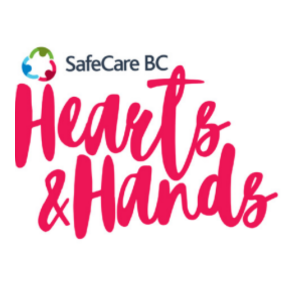World Alzheimer’s Month
Did you know that September is World Alzheimer’s Month? To know this year’s campaign, visit the Alzheimer’s Disease International.
For those that work or care for persons with Alzheimer’s or dementia, it often becomes a way of life. Working in supportive living or long-term care many residents’ behaviour is affected because of these illnesses. This month we want to remind you of how to safely care for residents that show responsive behaviours that may be caused by Alzheimer’s or dementia.
The first part of your own safety is to look after yourself! Residents with Alzheimer’s and dementia don’t mean to hurt you, but they may. So how do you protect yourself from these responsive behaviours? The first step to your safety prior to giving care is to stop and assess. Ask yourself; has anything changed with the resident? Doing an informal hazard assessment to assess the resident, ensures that you can provide care and be safe. It only takes a few seconds; remember you need to be safe to give care.
Take care of your mental health
Take care of your mental health – you must take care to give care. Looking after your own mental health will assist you in giving care. Make sure to take enjoy your hobby’s. This could be something physical like basketball, yoga, jogging and even walking. Perhaps you enjoy knitting, cooking, reading, visiting with friends or something else. Whatever it is that allows you to take the time to relax and recharge. Don’t forget about employer benefits. These may include massage or employee assistance programs allowing you to talk to a professional. Remember that you must take care in order to give care.
Share this infographic from the National Institute of Aging to remind yourself and your coworkers to make yourselves a priority too.
How different roles may be exposed to the hazard and what can you do?
Care staff
- Review the care plan and assess the resident for changes
- Communicate changes to others and be aware of the hazards, controlling them before you put yourself at risk
- Don’t leave meds unattended
Housekeeping
- When you enter the suite assess if anything has changed including the resident.
- If in doubt stop, assess and control the hazards before continuing.
- Don’t leave chemicals unattended
- Clean the room in pairs if possible to reduce accusations from residents
Dietary staff
- When serving residents look for changes and approach residents from the front when serving them
- Keep hot items at arm’s length
- Keep yourself at arm’s length
Admin staff and managers
- When meeting with residents ensure you have barriers and escape routes
- Don’t meet one on one
- Involve the family.
Maintenance
- Schedule work when the resident is not there
- Don’t leave tools unattended
Remember:
Don’t take it personal – It’s a disease not an attack on you.
- Document everything – This can help find the right level of care for the resident. Small changes add up and good documentation will help make the case for the right care



